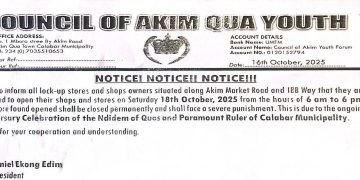By Admin
Stakeholders at a human rights workshop in Cross River State have demanded urgent reforms in the Nigeria Police Force, citing poor welfare, inadequate funding, and weak community relations as major reasons behind the rising wave of insecurity in the country.
The workshop, themed “Building Bridges: Enhancing Trust and Promoting Human Rights,” organised by We the People on Friday in Calabar. Brought together lawyers, civil society advocates, youth leaders, and senior police officers to deliberate on restoring public confidence in law enforcement.
Speaking to Journalist at the event, James Ibor, Secretary of the Administration of Criminal Justice Monitoring Committee in Cross River State and co-founder of the Basic Rights Council Initiative, described Nigeria’s police as one of the most underfunded and underpaid in the world.
He argued that the government’s neglect of police welfare has left officers ill-motivated and ill-equipped to perform their constitutional duties.
“The police are not positioned to police Nigerians properly. The budget for the police is inadequate, and when the little is made, less than 40 percent is released. How do we expect them to perform?” Ibor asked.
He lamented that police officers often buy their uniforms, fund operations from their pockets, and retire into poverty after decades of service.
“A Chief Superintendent of Police who retires after 35 years of service gets ₦30 million gratuity and a pension of ₦50,000 monthly. This is someone trained to carry arms. How do you expect such an officer to be motivated to risk his life?” he added.
According to Ibor, systemic underfunding not only cripples police operations but also drives officers into corruption, extortion, and illegal compromises in criminal cases, thereby undermining justice delivery.
Representing the Commissioner of Police in Cross River State, ACP Adewale Joshua, the Assistant Commissioner of Police (Operations), said the forum was timely, stressing that effective policing required the support and cooperation of young people.
“The youth are the real owners of their communities. They know the terrain better than any policeman. If the youth and the police cooperate, we can effectively combat crime and ensure peace,” he said.
While acknowledging public concerns over profiling and harassment, ACP Joshua urged officers to view the communities they serve as their second homes, even after retirement.
Participants at the forum warned that insecurity would persist unless Nigeria embarks on a systemic overhaul of its policing structure. They called for increased budgetary allocations, proper training, adequate equipment, and improved welfare to reposition the force.
The stakeholders also emphasised the need for transparency, accountability, and human rights–based approaches in policing, stressing that rebuilding trust between officers and the public is critical to national security.
























